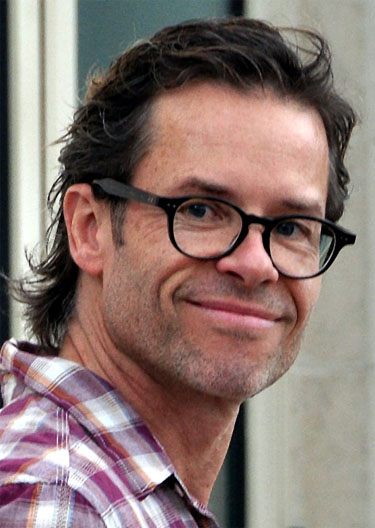Unraveling "The Guy" In Spy Kids: Game Over's Enigmatic Figure
Table of Contents
- The Multifaceted Meaning of "Guy": Beyond the Cinematic Screen
- The Spy Kids Franchise: A World of Espionage and Family
- Spy Kids 3D: Game Over – A Deep Dive into Virtual Reality
- Unmasking "The Guy": The Enigmatic Character of Spy Kids 3D
- The Architect of Chaos: Sylvester Stallone as The Toymaker
- Other "Guys" in the Spy Kids Universe: Beyond the Main Antagonist
- The Enduring Legacy of Spy Kids and "The Guy"
The Multifaceted Meaning of "Guy": Beyond the Cinematic Screen
Before we embark on our mission to decode "the guy Spy Kids," it's worth taking a moment to appreciate the sheer versatility of the word "guy" itself. Its origins and evolution are as intriguing as any spy plot. Historically, the term is deeply rooted in British culture, stemming from Guy Fawkes, the notorious conspirator in the 1605 Gunpowder Plot. After his foiled attempt to blow up the Houses of Parliament, effigies of Fawkes – human likenesses burned on bonfires – came to be called "guys." This tradition continues to this day in Britain, where "a model of a man that is made from old clothes filled with straw or paper" is burned on bonfires as part of the celebrations for Guy Fawkes Night. The verb "guy," meaning "to ridicule," is also derived from this historical event, reflecting the public's contempt for Fawkes. Over time, the use of the word "guy" extended beyond these effigies to describe "similar figures and then to a person of strange appearance or dress." Interestingly, its meaning diverged significantly across the Atlantic. In the United States, the word evolved to simply mean "man" and, in time, broadened even further to encompass "a person of either sex." It's now commonly used to address a group of people of either sex, as in "Do you guys want to go out tonight?" Colloquially, it can even refer to "anything seen to have character and personality, such as an animal or a toy," as exemplified by the phrase "The dog's left foreleg was broken, poor little guy." Beyond these common usages, "Guy" also refers to a legendary American hip hop, R&B, and soul group founded in 1987 by Teddy Riley, Aaron Hall, and Timmy Gatling. Damion Hall, a member of this legendary group, even declared in a new interview that his group was the best. This rich tapestry of meanings highlights how a single word can carry such diverse connotations, making its specific usage in the *Spy Kids* franchise particularly noteworthy.The Spy Kids Franchise: A World of Espionage and Family
The *Spy Kids* franchise, created and directed by the visionary Robert Rodriguez, burst onto the scene in 2001 with its inaugural film, *Spy Kids*. This American adventure comedy quickly captivated audiences with its unique blend of high-tech espionage, family values, and imaginative storytelling. The series centers around the Cortez family: Gregorio Cortez (Antonio Banderas) and Ingrid Cortez (Carla Gugino), who were once spies from different countries before falling in love and retiring. Their seemingly ordinary lives are turned upside down when they are kidnapped, forcing their children, Carmen (Alexa PenaVega) and Juni (Daryl Sabara), to step into their parents' spy shoes and save the day. The films are renowned for their vibrant visual style, quirky gadgets, and a heartfelt emphasis on the importance of family bonds. Each installment pushes the boundaries of children's cinema, introducing increasingly fantastical elements and memorable villains. The franchise quickly grew, leading to sequels like *Spy Kids 2: The Island of Lost Dreams* and the subject of our deep dive, *Spy Kids 3D: Game Over*, among others. The series has left an indelible mark on pop culture, proving that family-friendly action can be both thrilling and meaningful.Robert Rodriguez's Vision: Blurring Lines and Building Universes
Robert Rodriguez is a filmmaker known for his distinctive, often DIY, approach to cinema, and the *Spy Kids* franchise is a prime example of his creative genius. He not only directs but often writes, produces, edits, and even composes music for his films, giving them a singular artistic vision. His work frequently blurs the lines between genres, seamlessly blending action, comedy, and fantasy, making his films accessible and enjoyable for a wide audience. A fascinating aspect of Rodriguez's interconnected cinematic world often comes up in discussions about *Spy Kids* and his other works, particularly the *Machete* films starring Danny Trejo, who also appears as Uncle Machete in the *Spy Kids* series. While Trejo joked in an interview that the events of the *Machete* films show what his character does when he’s not taking care of the kids, implying continuity, Rodriguez himself has clarified that the two film series take place in separate narrative universes. They follow alternative versions of the character, a common practice in shared cinematic multiverses. This distinction is crucial for understanding the self-contained nature of the *Spy Kids* narrative, ensuring that its fantastical elements stand on their own without needing to reconcile with the grittier reality of the *Machete* universe. Rodriguez's commitment to crafting distinct yet stylistically consistent worlds is a hallmark of his filmmaking.Spy Kids 3D: Game Over – A Deep Dive into Virtual Reality
*Spy Kids 3D: Game Over*, released in 2003, marked a significant departure for the franchise, embracing the then-burgeoning trend of 3D cinema and immersing its characters – and audience – directly into a video game world. The film kicks off with Carmen Cortez caught in a virtual reality game designed by the kids' new nemesis, the sinister Toymaker. It's up to Juni Cortez, the younger sibling, to save his sister, and ultimately the world, from the Toymaker's digital clutches. The core premise revolves around "Game Over," a highly anticipated virtual reality game that has the power to trap players within its digital confines. Juni must navigate perilous levels, battle formidable bosses, and overcome various challenges, all while trying to locate Carmen and prevent the Toymaker from unleashing his game's influence on the real world. The film cleverly uses the video game format to introduce new characters, fantastical landscapes, and unique challenges, making it a visually dynamic and action-packed installment. The 3D element was heavily promoted, inviting viewers to feel as if they were truly inside the game alongside Juni, dodging digital projectiles and exploring virtual environments. This innovative approach solidified *Spy Kids 3D: Game Over* as a memorable entry in the franchise, pushing the boundaries of what a family adventure film could be.Unmasking "The Guy": The Enigmatic Character of Spy Kids 3D
Within the intricate digital landscape of *Spy Kids 3D: Game Over*, one particular character sparked considerable discussion and intrigue among viewers: "the guy Spy Kids" refers to. In the movie, it is said that "a character named The Guy will help players win." This tantalizing promise sets up an expectation for a powerful ally, a guiding force within the game's treacherous levels. However, the film deliberately maintains an air of mystery around him. We never explicitly learn if he's an NPC (Non-Player Character) – a computer-controlled entity designed to assist – or an actual player, perhaps another human trapped within the game or even a powerful figure operating from the outside. This ambiguity is a masterstroke in storytelling, as "The Guy" becomes a symbol of hope and potential aid without ever fully revealing his form or motivations. His presence is felt more as a concept, a whispered legend among players, rather than a tangible character Juni directly interacts with. The notion that "they only say The Guy" further emphasizes his elusive nature, making him almost mythical within the game's lore. This narrative choice keeps the audience, much like Juni, on the edge of their seats, constantly wondering if and when this promised helper will manifest.The Digital Helper: NPC or Player?
The central question surrounding "the guy Spy Kids" in *Game Over* – whether he is an NPC or a player – profoundly impacts the stakes and interpretation of the film. If "The Guy" is an NPC, it implies a pre-programmed benevolent force within the game, perhaps an intentional design by a previous developer or even a failsafe built by the Toymaker himself (unlikely, given his villainous intent). This would mean his assistance, while valuable, is part of the game's inherent structure. However, if "The Guy" is a player, the implications are far more intriguing. It suggests another consciousness, another individual navigating the same perilous virtual reality, perhaps even someone with a deeper understanding of the game's mechanics or the Toymaker's weaknesses. This scenario introduces the possibility of an unseen, powerful ally whose actions are driven by genuine human agency rather than code. The ambiguity surrounding "The Guy" heightens the tension and keeps the audience guessing. It also serves as a clever narrative device, allowing Juni to face challenges largely on his own, reinforcing his growth as a hero, while still maintaining the hope that a mysterious benefactor might intervene. This unresolved mystery makes "The Guy" one of the most memorable, despite being largely unseen, elements of *Spy Kids 3D: Game Over*.The Architect of Chaos: Sylvester Stallone as The Toymaker
While "the guy Spy Kids" remained largely unseen, the main antagonist of *Spy Kids 3D: Game Over* was anything but. The villainous Toymaker, the mastermind behind the perilous virtual reality game, was brought to life by none other than the legendary Sylvester Stallone. His casting was a significant coup for the film, bringing an iconic action star to a family-friendly franchise and allowing him to flex his acting muscles in a truly unique role. Prior to the events of the film, Sebastian, as the Toymaker was once known, was a respected figure, a former spy who had fallen from grace and developed a deep-seated resentment. His "evil machinations" stem from a desire to control the minds of children through his insidious game, effectively turning them into an army of digital puppets. Stallone's portrayal is multifaceted, as he embodies not just the main villain but also the various personalities within the game – a multi-faceted performance that showcases his range beyond the action hero roles he's famous for. This complex villain provided a formidable challenge for Juni and Carmen, elevating the stakes of their virtual adventure.From Action Hero to Digital Villain: Stallone's Iconic Performance
Sylvester Stallone's portrayal of The Toymaker in *Spy Kids 3D: Game Over* is a standout performance that truly defines the film's villain. Known globally for his iconic roles as Rocky Balboa and John Rambo, Stallone's casting as a children's film antagonist was unexpected yet brilliant. He brought a unique gravitas and eccentricity to the character, making The Toymaker both menacing and strangely endearing in his madness. Stallone's performance was particularly notable for its multi-personality aspect, as The Toymaker manifests in the game through various avatars: a mad scientist, a general, and a benevolent, wise figure. This allowed Stallone to showcase different facets of his acting ability, from booming authority to subtle manipulation. His iconic voice and physical presence, even when digitally altered, added significant weight to the villain. Beyond *Spy Kids*, Stallone has continued to diversify his roles, playing characters like Jack Carter in the 2000 *Get Carter* remake, Victor Von Ion in *Ratchet and Clank*, and the lovable King Shark in *The Suicide Squad*. His performance as The Toymaker remains a testament to his versatility and willingness to embrace unconventional roles, cementing his place as a memorable "guy" in the *Spy Kids* universe.Other "Guys" in the Spy Kids Universe: Beyond the Main Antagonist
While our primary focus has been on "the guy Spy Kids" refers to as the enigmatic helper in *Game Over* and the overarching villain, The Toymaker, the *Spy Kids* universe is populated by a diverse array of "guys" in various capacities. The term "guy" itself, as we've explored, is broadly applicable, and within the context of the films, it can refer to many male characters or even personified objects. For instance, the first *Spy Kids* film introduced Alexander Minion, portrayed by Tony Shalhoub. Minion is a major character and the main antagonist in that film, serving as Fegan Floop's personal assistant and the leader of the Lisp's team for world domination. He's a distinct "guy" from The Toymaker and "The Guy" in *Spy Kids 3D*, showcasing the variety of male figures in the franchise's rogues' gallery. Beyond villains, the films feature numerous male agents, scientists, and supporting characters who contribute to the vibrant world. Even in a colloquial sense, one might refer to a sympathetic character or even a beloved gadget as a "poor little guy" if it faced peril, echoing the broader usage of the word to imbue character into non-human entities. The *Spy Kids* franchise, therefore, is rich with diverse "guys," each playing their part in the grand adventure.The Unsung Heroes and Familiar Faces
Beyond the central Cortez family and the major villains, the *Spy Kids* franchise is bolstered by a cast of memorable male characters who, though not always in the spotlight, are integral to the narrative. Uncle Machete, played by Danny Trejo, is a prime example. While his separate cinematic universe has been clarified by Rodriguez, his presence in *Spy Kids* as a gruff but caring inventor and former spy provides a crucial familial and heroic figure. He's certainly a "guy" who leaves a lasting impression. Similarly, the films feature various other male characters, from fellow agents and scientists to the more minor figures who populate the world of OSS (Organization of Super Spies). These unsung heroes, though perhaps not as central as Juni or Gregorio, contribute to the rich tapestry of the *Spy Kids* universe, providing support, comic relief, or essential plot points. Whether they are the bumbling henchmen, the wise mentors, or the background operatives, each "guy" plays a role in making the *Spy Kids* films the beloved adventures they are, reinforcing the idea that it takes a diverse group of individuals to save the world, even if some are only briefly glimpsed or merely hinted at, like the mysterious "the guy Spy Kids" referred to in *Game Over*.The Enduring Legacy of Spy Kids and "The Guy"
The *Spy Kids* franchise has undeniably carved out a significant niche in the landscape of family entertainment. Robert Rodriguez's innovative vision, blending high-octane action with heartfelt family themes, resonated deeply with audiences worldwide. The films not only entertained but also inspired a generation of young viewers, proving that kids could be just as capable and heroic as their adult counterparts. *Spy Kids 3D: Game Over*, in particular, pushed technological boundaries for its time, immersing audiences in a then-novel 3D virtual reality experience that anticipated the gaming trends of the future. The enduring intrigue surrounding "the guy Spy Kids" refers to in *Game Over* is a testament to the film's clever storytelling. By creating a character who is spoken of but never fully revealed, the movie fostered a sense of mystery and speculation that continues to captivate fans. This elusive figure, alongside the memorable performance of Sylvester Stallone as The Toymaker, cemented *Spy Kids 3D* as a unique and influential entry in the series. The franchise's legacy is one of boundless imagination, technological ambition, and a steadfast belief in the power of family, ensuring its place as a cherished cinematic experience for years to come.Conclusion
From the historical origins of the word "guy" rooted in Guy Fawkes Night to its modern colloquial uses, our journey has ultimately led us back to the fascinating world of Robert Rodriguez's *Spy Kids*. We've explored how the term takes on a specific, enigmatic meaning within *Spy Kids 3D: Game Over*, referring to the mysterious "The Guy" who is promised to help players win, yet whose true nature remains shrouded in mystery. This elusive character, whether an NPC or a player, adds a compelling layer of intrigue to Juni's quest to save Carmen from the digital clutches of the formidable Toymaker, brilliantly portrayed by the iconic Sylvester Stallone. The *Spy Kids* franchise, with its blend of family values, innovative gadgets, and thrilling adventures, continues to be a beloved series. The discussions surrounding characters like "the guy Spy Kids" refers to, and the memorable villains like The Toymaker, highlight the lasting impact and depth of these films. They remind us that even in the most fantastical virtual realities, the power of family and courage can overcome any challenge. What are your thoughts on "The Guy" in *Spy Kids 3D*? Do you believe he was an NPC or a hidden player? Share your theories and favorite moments from the *Spy Kids* franchise in the comments below! Please subscribe, like, share, and comments help this channel to develop and make better! Your engagement helps us continue to explore fascinating topics like this.- Lyde Allen Green
- Carly Jane Onlyfans
- Bocil Sotwe
- Peter Ellis Kings Guard
- Can An Animal Get A Human Pregnant

500+ Interesting Guy Photos · Pexels · Free Stock Photos

Guy Pearce - Wikipedia

A Guy Named Guy - Performer & Speaker | Stuff and nonsense